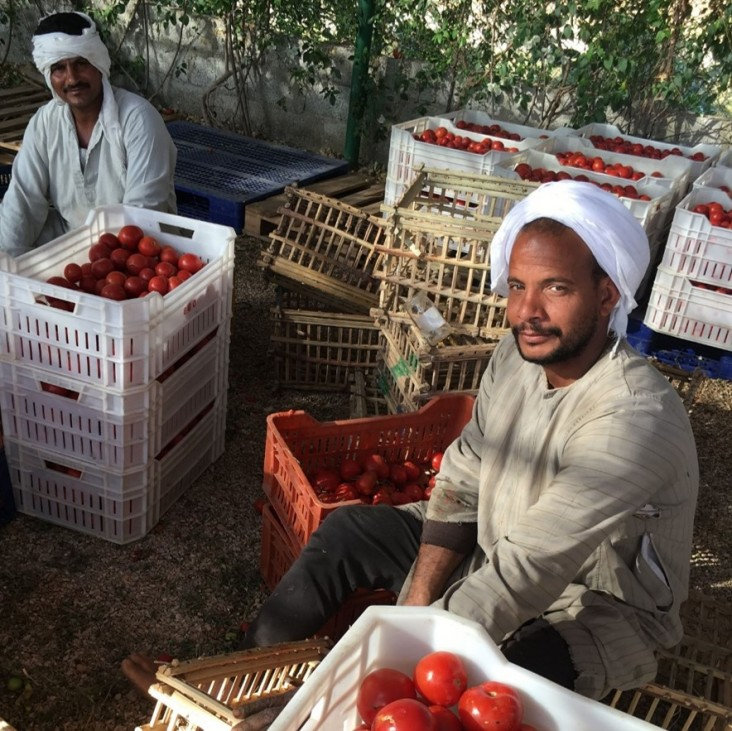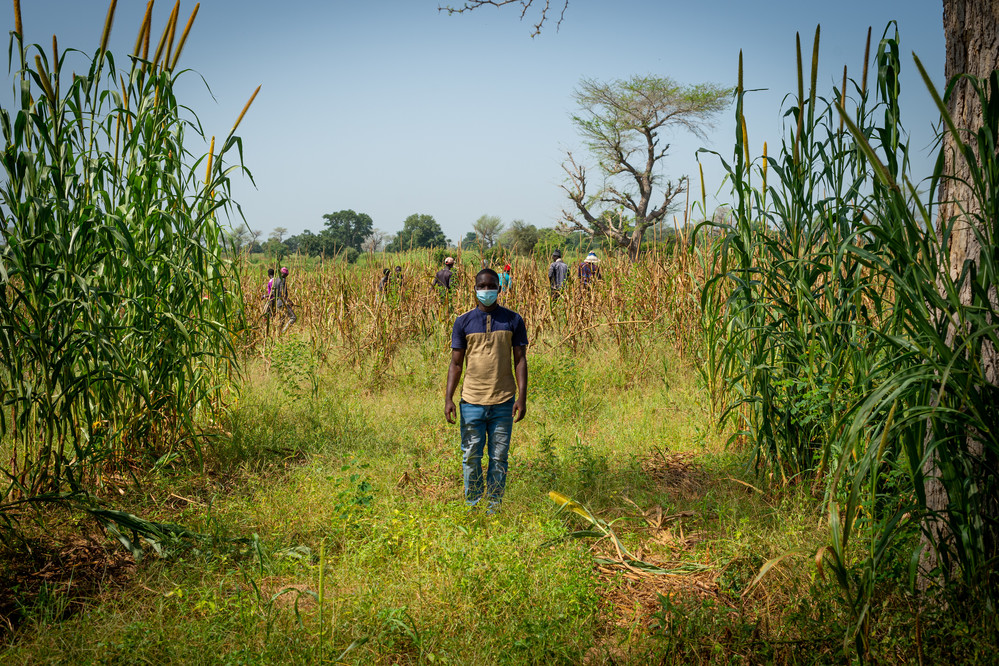Through the Feed the Future Egypt Rural Agribusiness Strengthening activity, USAID helps farmers in Upper Egypt and the Delta become more self-reliant and grow marketable crops that meet international standards for export. Under the U.S. Government’s global hunger and food security initiative, Feed the Future, Egyptian farmers and food processors are establishing connections to domestic and international markets, gaining access to finance, and increasing their adherence to food and safety practices.

Photo: USAID
Additionally, the activity is assisting Egyptian agribusinesses in modernizing their food technology and delivery systems by upgrading processing facilities, refrigeration trucks, and water-efficient irrigation systems. This activity builds on USAID’s previous investments in Egypt’s agricultural sector, including in irrigation infrastructure, establishment of agricultural associations, and training programmes to help farmers transition from traditional staple crops to high-value horticulture.
Implementing Partner: ABT Associates; Life of Project: August 2018 – July 2023; Total Estimated Cost: $36.3 million; Governorates: Alexandria, Assiut, Aswan, Beheira, Beni Suef, Cairo, Dakahlia, Giza, Gharbia, Ismailia, Luxor, Menoufia, Minya, Qalyoubia, Qena, Sharkia, Sohag
GOALS
-
Promote rural agribusiness development in Egypt by strengthening market linkages;
-
Improve the value chain of Egyptian horticulture through improved post-harvest handling and food storage;
-
Increase the productivity of Egyptian smallholder farmers and food processors
-
Improve the quality of agricultural exports from Egypt;
-
Expand access to healthy food options to improve nutrition for women and children in rural areas.
RESULTS
-
Engaged 34,019 individuals (8,313 women and 25,706 men) – including smallholder farmers, producer organization members, university graduates, women, and packhouse labourers – in training and other activities since the project startup;
-
Conducted 2,709 trainings on production, post-harvest handling, marketing, food safety, nutrition, and gender issues;
-
Signed 41 Memorandum of Understanding (MOUs) between the project and producer organizations in Upper Egypt The MOUs outline the type of technical assistance the project will provide, including in marketing, production and post-harvest services, institutional reform, training, capacity building, and nutrition for smallholder farmer members and their families;
-
Facilitated the signing of 27 forward contracts between producer organizations and exporters within the Project’s value chains;
-
Facilitated the signing of a 12 input supplier contract between companies and producer organizations in Upper Egypt for fertilizers and pesticides;
-
Developed and launched eight agri-loan products to serve 182 small farmers (56 women and 126 men) with a total amount of EGP 3,214,000 (USD 205,564);
-
Identified two low-cost solutions that improve efficiency and capacity of cold chain gaps and post-harvest services: CoolBot and solar greenhouses;
-
Eleven grant concepts papers were chosen to continue to the next phase of the grants cycle as per Annual Programme Statement criteria;
-
Signed an MOU with the Food Export Council to build the capacity of processors (production and quality department engineers) on food safety requirements to meet local and international market requirements;
-
Signed an MOU with the Agriculture Exporting Council to qualify packhouses and small farm labourers to meet the local and international food safety requirements
-
Signed an MOU with the National Food Safety Authority to build its capacity of inspectors, and to develop an online training portal/website;
-
Developed eight food safety plans for two producer organizations in Assiut, two producer organizations in Qena, and four agro-processing companies to support them in meeting the National Food Safety Authority’s requirements.
This article was originally published by USAID.

